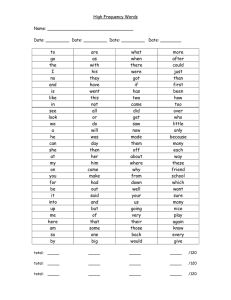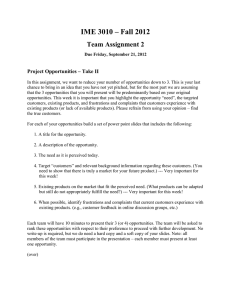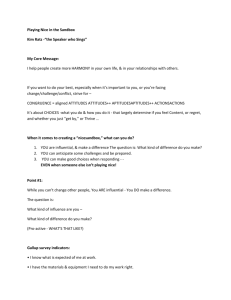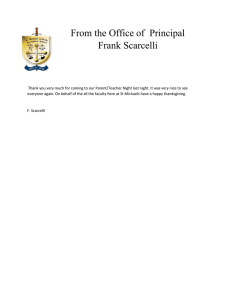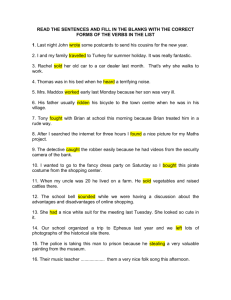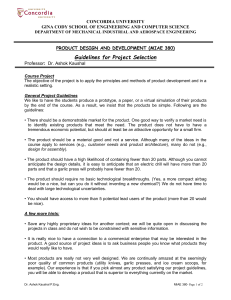IME 3010 – Fall 2012 Team Assignment 1
advertisement
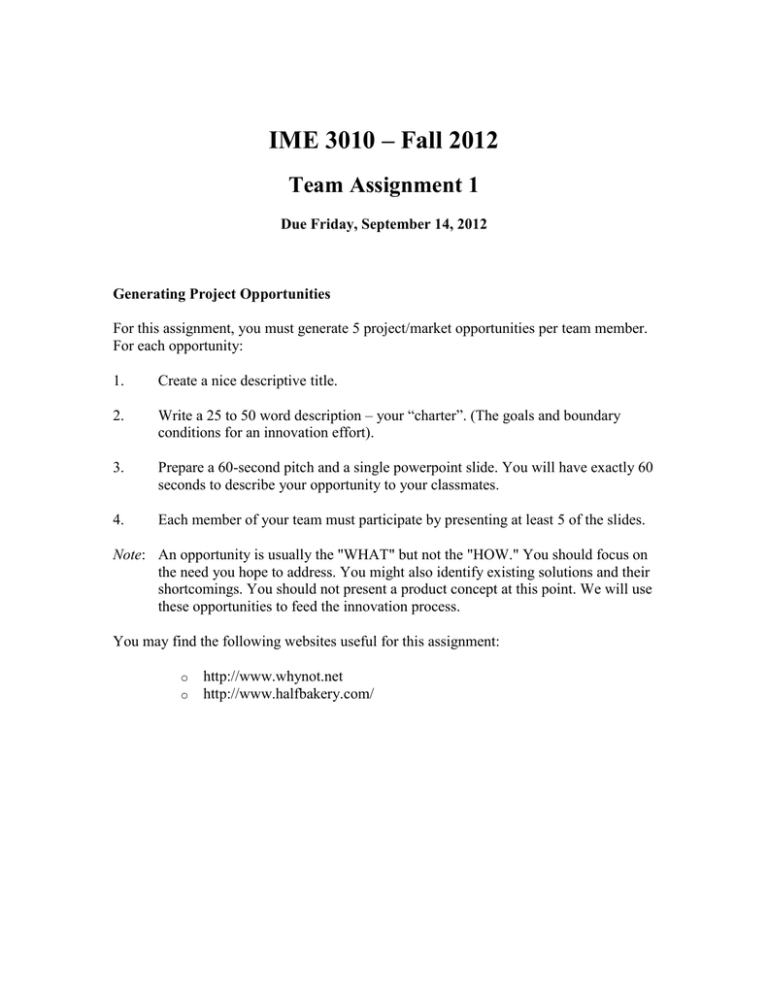
IME 3010 – Fall 2012 Team Assignment 1 Due Friday, September 14, 2012 Generating Project Opportunities For this assignment, you must generate 5 project/market opportunities per team member. For each opportunity: 1. Create a nice descriptive title. 2. Write a 25 to 50 word description – your “charter”. (The goals and boundary conditions for an innovation effort). 3. Prepare a 60-second pitch and a single powerpoint slide. You will have exactly 60 seconds to describe your opportunity to your classmates. 4. Each member of your team must participate by presenting at least 5 of the slides. Note: An opportunity is usually the "WHAT" but not the "HOW." You should focus on the need you hope to address. You might also identify existing solutions and their shortcomings. You should not present a product concept at this point. We will use these opportunities to feed the innovation process. You may find the following websites useful for this assignment: o o http://www.whynot.net http://www.halfbakery.com/ General Guidelines to Consider and Keep in Mind We want you to produce a physical prototype of your product by the end of the course. As a result, we insist that your product be simple. Following are the guidelines we are asking you to following as you consider possible projects: • There should be a demonstrable market for the product. One good way to verify a market need is to identify existing products that meet the need. Your product need not be a variant of an existing product, but the market need addressed by your product should be clearly evident. The product does not have to have a tremendous economic potential, but should at least be an attractive opportunity for a small firm. • The product should be a material good and not a service. Although many of the ideas in the course apply to services (e.g., customer needs and product architecture), many do not (e.g., design for assembly). • The product should have a high likelihood of containing fewer than 10 parts. Although you cannot anticipate the design details, it is easy to anticipate that an electric drill will have more than 10 parts and that a garlic press will probably have fewer than 10. • You should be confident of being able to prototype the product for less than $100 $200. For example, a new Gillette razor may have about 10 parts, but would require tens of thousands of dollars to prepare a geometrically accurate prototype. • The product should require no basic technological breakthroughs. (Yes, a more compact airbag would be a nice, but can you do it without inventing a new chemical?) We do not have time to deal with large technological uncertainties. • You should have access to more than 5 potential lead users of the product (more than 20 would be nice). • Save any highly proprietary ideas for another context; we will be quite open in discussing the projects in class and do not wish to be constrained with sensitive information. • The most successful projects tend to have at least one team member with strong personal interest in the target market. • It is really nice to have a connection to a commercial enterprise that may be interested in the product. A good source of project ideas is to ask business people you know what products they would really like to have.
